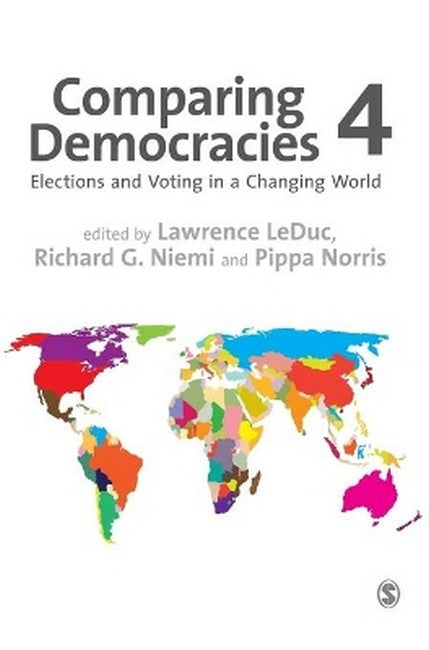Richard G. Niemi is Don Alonzo Watson Professor of Political Science at the University of Rochester, where he has taught for forty-five years and has served as department chair, associate dean for graduate studies, and interim dean. He earned his PhD from the University of Michigan in 1967. Professor Niemi has been a Guggenheim fellow and a fellow at the Center for Advanced Study in the Behavioral Sciences. He has been a visiting professor at the University of Lund (Sweden) and at the University of Iowa. In 2007-2009 he was president of the American Political Science Association's Section on State Politics and Policy. He is a foreign member of the Finnish Academy of Science and Letters and a member of the American Academy of Arts and Sciences. He is the author, coauthor, or editor of numerous works on political socialization, civic education, voting behavior, and various aspects of state politics. He has an ongoing interest in the Native Americans of upstate New York and Wisconsin, from whom he can trace a portion of his ancestry. Pippa Norris is Director of the Democratic Governance group in the United Nations Development Programme in New York and the Maguire Lecturer in Comparative Politics at Harvard University's John F. Kennedy School of Government. Recent books include Sacred and Secular: Politics and Religion Worldwide (with Ronald Inglehart, 2004), Electoral Engineering: Voting Rules and Political Behavior (2004), and Driving Democratization: What Works (2006). Norris, who is a political scientist, has served as an expert consultant for many international bodies including the UN, UNESCO, the Council of Europe, International IDEA, the National Endowment for Democracy, and the UK Electoral Commission.
Request Academic Copy
Please copy the ISBN for submitting review copy form
Description
Introduction: Democracy and Autocracy Electoral Institutions and Representation Parties and Party Systems Citizenship and Participation Election Campaigns The Political Representation of Women and Minorities The Elusive Economic Vote Voting Behavior: Choice and Context Electoral Integrity and Political Legitimacy Authoritarian Elections and Regime Change Conclusion: Why Elections Matter
Compared to its predecessors, the fourth edition of Comparing Democracies is entirely different and yet it is much the same. It is much the same because it offers again a superb collection of chapters dealing with democratic institutions and processes in a changing and multifaceted political world. And it is entirely different because the focus of the collections has been altered to include measurement issues of democracy; a growing emphasis of the profession on the context of the vote, and on the manner in which elections are conducted. As a consequence of that, all chapters but one are entirely new or substantially revised. The group of contributors, while largely different from previous editions, is again outstanding. It introduces some of the most important new work on those issues to the broader community of scholars interested in elections and democracy. For all these reasons, Comparing Democracies will remain a must-read for students and lecturers of elections and voting behaviour, comparative politics, parties, and democracy. -- Professor Hermann Schmitt The 4th edition of Comparing Democracies continues the editors' tradition of bringing together leading scholars to address the fundamentals of democratic politics and major advances in scholarship. In this edition, they expand their view to include recent advances in thinking about how even apparently futile competition in electoral-like settings shapes outcomes in authoritarian regimes. This and other new additions mean that this work now touches on every nation in a truly comparative way without losing sight of democratic fundamentals. -- Professor John Aldrich Indeed, more so than any of the earlier editions, the present volume is characterised by a considerable use of statistical models. Another valuable aspect of the book is that it provides a list of all the electoral systems used around the world, which includes disproportionality scores, the effective number of parties and the percentage of female MPs...For the comparative political scientist this edition is an improvement upon earlier editions. It is a safe prediction that the individual chapters will be cited extensively in years to come. -- Matt Qvortrup Comparing Democracies, Fourth Edition, brings together eleven prominent scholars who cover a wide range of highly relevant topics in the field of electoral research and provides a great resource for young scholars and students to build a theoretical and comparative understanding in the wide range agenda of political science. -- Miroslav Nemcok

